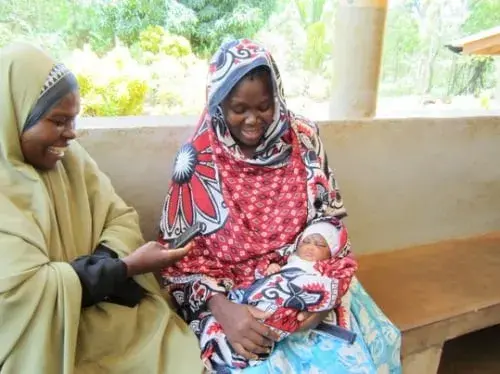This week, we are highlighting remarkable young people in the region who are building peace in their communities. Here's Paska's story:
Paska Alfred was just 11 years old when she was forced to flee the life she knew in South Sudan to seek safety in a refugee camp in northern Uganda. Now 23, she has returned home and has risked everything to become a journalist and advocate for peace.
Although South Sudan gained independence in 2011, the country has faced more than two decades of war. Recent fighting has forced many to flee to neighbouring Uganda – now host to the largest number of refugees in Africa (UN Report, 2017).
“As a refugee, I was so traumatized. Even after being displaced from your own country, you’re moving to another country or another settlement but you are still fighting for reasons you don’t even know.”
“As a refugee, I was so traumatized,” recalls Paska. “Even after being displaced from your own country, you’re moving to another country or another settlement but you are still fighting for reasons you don’t even know.”
Many young refugees, particularly young women and girls, face heightened vulnerabilities even after receiving asylum. Physical abuse and gender-based violence (GBV), exploitation and harmful coping mechanisms are common in refugee camps.
Paska knew that something had to change – their trauma was taking control of their lives.
“If it’s possible to achieve peace, I knew I needed to get involved in initiatives. I needed to help. I volunteered a lot with local and regional organizations,” says Paska.
With the ability to speak over 10 languages, Paska had a unique connection with young people in the camps. She has mentored many young people who felt their only way out was to turn to violence. She also became a crucial source of support to adolescent girls.
“If you try to talk to them and put some of the differences aside and say, actually, you can do something positive instead of something negative, that (can) bring about peace.”
As a journalist with Eye Media in South Sudan, Paska hopes that her stories can bring hope to her community and advocate for peace in the country.
“I think it is very important for the youth to get involved in peace initiatives because it is about your country. If you do not take ownership, who will? Are you willing to stand up for your own country? Are you willing to do something extraordinary for your country?” she asks.
Women and young people are often the first to respond in a crisis and are vital to an effective and inclusive humanitarian response that is locally driven and sustainable. Ensuring young people have the skills, capacity and resources to prevent, prepare for, respond to and recover from humanitarian situations, will help reduce the costs of and the need for international humanitarian support, improve humanitarian effectiveness and strengthen the resilience of communities.
UNFPA is committed to empower and promote the participation and leadership of young people in crisis prevention and recovery. This enables adolescents and young people to be agents of positive transformation.
UNFPA, through the Safeguard Young People Programme, has helped improve the health and rights realities of millions of young people in Southern Africa. The programme most recently supported the East and Southern Africa Regional Consultation on Youth, Peace and Security held in Johannesburg, South Africa. This regional consultation is part of a global effort to bolster action on Resolution 2250. The discussions from various regional consultations will feed into the Progress Study on Youth, Peace and Security, highlighting the positive contributions of young people in peace-building make.
- Corrie Butler





